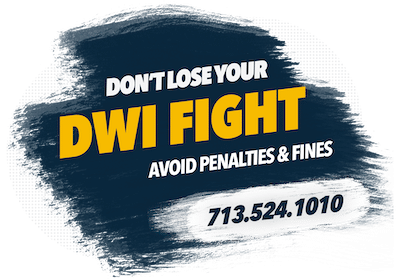TEXAS NONDISCLOSURE LAW GIVES “SECOND CHANCE” TO THOSE CONVICTED OF DWI

In The Latest Legislative Session Of 2017, The Texas Legislature Changed The Nondisclosure Law Giving Those Accused Or Previously Convicted Of DWI A Valuable Tool That Can Minimize The Long-Term Damage To Their Criminal Record.
Until Recently, If You Pleaded Guilty To A DWI Charge In Texas, The Final Conviction Would Stay On Your Record Forever.
Fortunately For Many, That’s No Longer The Case.
This “Second Chance” Law, As It Has Become Known, Allows For A Select Group To File A Petition For Non-Disclosure Which Effectively Seals The Conviction And Prevents It From Being Seen By The Public, Including A Potential Employer.
The Nondisclosure Law Is Both Good News And Bad News. First, The Bad News…
Three Things Could Potentially Prevent You From Being Granted A Non-Disclosure Order:
- First And Foremost, A Person Must Be A True First Offender. A Conviction For Anything Other Than A Class C Traffic Offense Or Any Class B Or Higher Charge That Resulted In A Deferred Prosecution Would Eliminate A Person From Consideration.
- Second, The DWI Conviction For Which A Person Is Seeking A Nondisclosure Must Be A Class B Charge. You Are Not Eligible If You’ve Been Convicted For A Class A DWI Under Penal Code §49.04(D) Alleging An Alcohol Concentration Of .15 Or Greater.
- Finally, You Cannot Be Granted A Nondisclosure If There Was An Accident That Resulted In Injury To Anyone Other Than You.
There Is Also A Waiting Period That Varies Based On The Resolution Of Your Case.
If Your Plea Bargain Resulted In Community Supervision AND There Was A Restriction Calling For An Ignition Interlock Device For At Least Six (6) Months, You May File A Petition Under The Nondisclosure Law Two (2) Years After You’ve Successfully Completed Probation.
If Your Conviction Did Not Result In A Probation Or You Weren’t Required To Install The Interlock Device, Then You Must Wait Five (5) Years Before Filing Your Petition Under The Non-Disclosure Law.
So Effectively, Best Case Scenario Is A Three (3) Year Wait From The Date Of Your Conviction; Worst Case, You Wait Five (5) Years.
So What’s The Good News About Nondisclosure?
The Law Went Into Effect On September 1, 2017, And The Nondisclosure Law Is Completely Retroactive!
That Means, Regardless Of When You Were Convicted, If You Meet The Requirements, You May File A Petition For Non-Disclosure And Have Your Record Sealed.
For Many, The Required Waiting Period Is Over And You Can File A Petition Immediately.
I Think I May Qualify For Nondisclosure. What Do I Do Now?
If You Think You May Qualify, Or You Just Have Questions About This New Law And How It May Affect Your Prior Case, Contact Us Here At Trichter & LeGrand.
We’ve Been Defending DWI Cases Since 1980 And, Although The Law Seems Straight Forward, It’s Still New And There’s Plenty Of Room For Interpretation.
We Can Help Give You The Facts And Guidance On How To Make The Best Decision For Your Particular Situation.
TELL US ABOUT YOUR CASE
Use the form to request your free consultation to discuss your case with one of our attorneys. The use of this form does not establish an attorney-client relationship.
The information on this website is for general information purposes only. Nothing on this site should be taken as legal advice for any individual case or situation. This information is not intended to create, and receipt or viewing does not constitute, an attorney-client relationship.





